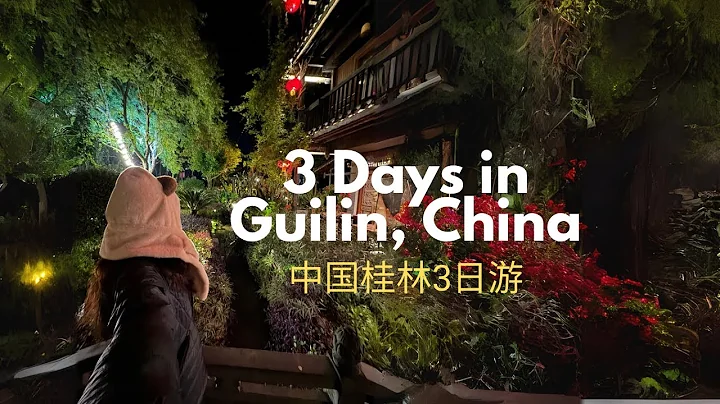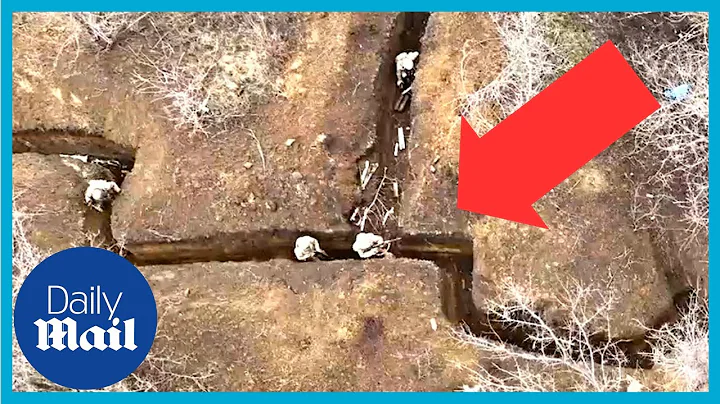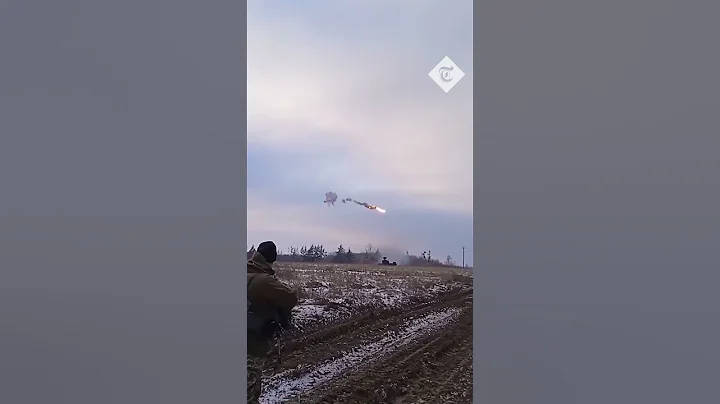In the early morning of June 4, 1928, outside Shenyang City, Huanggutun Station.
This is the intersection of South Manchuria Railway and Beijing-Fenghuang Railway . A heavily guarded patent is driving slowly along the Beijing-Fengcheng Railway.
Sitting in the car was Zhang Zuolin, the nominal supreme ruler of the Beiyang Government, the Grand Marshal of the Navy and Army of the Republic of China, the leader of the Fengcian warlord, and the "Northeast King" .
The special train he was riding had 20 carriages, and the 10th carriage Zhang Zuolin was in was called the "Blue Steel Car". It was a special float purchased from the United Kingdom by Empress Dowager Cixi and was very ornately decorated.
The train stayed at Huanggutun Station for 20 minutes, and then slowly set off, preparing to go to Shenyang. Qi Enming, commander of the Fengtian Military Police who had been stationed at the station, slowly let go of his hanging heart.
After all, he discovered a few days ago that the Japanese army had strengthened the guards here and was secretly building fortifications.
html At 05:23, the special train slowly drove into the three-hole bridge in front of the station. No one expected that there was a loud "boom" at this time, half of the Three-hole Bridge collapsed, the rails curled and deformed, and Zhang Zuolin's special train was immediately blown away more than ten meters away.Zhang Zuolin, who was seriously injured, was driven to the Marshal's Mansion in Shenyang by Qi Enming. However, due to his serious injuries, he died before nine o'clock in the morning.
After Zhang Zuolin died, naturally some people were happy and some were worried. But what people didn't expect was that the Japanese Prime Minister Tanaka Giichi cried loudly and shouted: Everything is over!
So what is the secret behind the Huanggutun incident? What does it have to do with Tanaka Yiichi that caused him to say such a thing?
And what impact did Zhang Zuolin's death have on China and Japan at that time?

(The bombing site of the special train)
The answers to all these questions must start with the history of Zhang Zuolin’s fortune and his relationship with Tanaka Giichi.
Support
Zhang Zuolin was born in 1875. His family was poor when he was young. He only attended private school for less than three years and then wandered with his family. Later, he worked as a veterinarian and joined the army. After that, he simply went up to the mountains and became a bandit.
The Qing government was suffering from internal and external troubles and was unable to eliminate Zhang Zuolin. He could only order to recruit him, and he became an official of the imperial court.
The Russo-Japanese War broke out in 1904, and the two imperialist countries actually went to war within our territory. Zhang Zuolin first helped the Russians , but was captured by the Japanese army. He had no sense of moral integrity and turned to the Japanese.
In this way, Zhang Zuolin relied on the big tree of "Japan" to rise step by step, and finally became the "Northeast King" in charge of the three northeastern provinces .
After the two Zhili-Fengtian wars , Zhang Zuolin even invaded Beijing, took control of the Beiyang government, and became the nominal supreme ruler of China at that time.

It can be seen from the history of Zhang Zuolin's fortune that the Fengcian warlords he commanded have an inseparable relationship with the Japanese.
As early as the 30th year of Guangxu (1904), Zhang Zuolin fought for the Russians and was captured by the Japanese. At that time, he was just a bandit leader, and the Japanese wanted to kill him directly.
At this time, a person appeared, that is the future Japanese Prime Minister Tanaka Yiichi!
Tanaka Yiichi was born in 1863 and graduated from Army University at the age of twenty-nine. However, because he was good at strategy, good at drilling camps, and proficient in Russian, on the eve of the Russo-Japanese War, he was transferred to the Russian Department of the Ministry of War as the section chief.

Tanaka Yiichi
After the outbreak of the Russo-Japanese War, he was transferred to the Manchuria Army Headquarters as a combat staff officer. During this period, he met Zhang Zuolin and helped Zhang Zuolin save his life.
From then on, Zhang Zuolin cut off contact with the Japanese. After the Revolution of 1911, Zhang Zuolin went to see Kentaro Ochiai, the Consul General of Japan in Fengtian, and said to him face to face: "I think it would be better to leave the three eastern provinces to outsiders than to leave them to the hands of the southerners." Of course. If Japan has any instructions for me, I will do my best to obey them."
Later, when Zhang Zuolin unified the entire three eastern provinces, the Japanese also contributed a lot. In 1916, in order to help him stabilize Fengtian's finances, the Japanese lent him three million yen. And Only a year before this incident, his good friend Tanaka Yiichi planned the infamous "Twenty-One ". In 1919, in order to help Zhang Zuolin expel Meng Enyuan, the warlord of Jilin, the Japanese. Launching the "Kuanchengzi Incident", Zhang Zuolin captured Jilin without any blood, and Meng Enyuan was forced to step down. In the first Zhili-Fengtian campaign in 1922, Zhang Zuolin was defeated and returned to the pass. It was only with the support of the Japanese Kwantung Army that Zhang Zuolin was able to retreat. Regroup and declare the independence of Northeast China.
In 1925, Guo Songling rebelled. Zhang Zuolin's general Li Jinglin declared "neutrality" with an army of 100,000. Zhang Zuolin's biggest crisis came at the request of Zhang Zuolin, and Guo Songling was defeated. After being defeated, the Japanese teamed up with Zhang Zuolin to attack Feng Yuxiang, causing Feng Yuxiang to retreat to the northwest and be forced to resign.
It can even be said that the history of Zhang Zuolin's fortune is tied to Japan. . Without the support of Japan, there would be no tyranny of the Feng clan.
Loyalty
But there is no free lunch in the world. While Zhang Zuolin is gaining support from the Japanese, he is actually cooperating with the Japanese expansion in Northeast China. Even the Japanese themselves say that. Passed: "Only Manchuria is completely outside the anti-Japanese circle"
There are many rumors on the Internet about Zhang Zuolin being "patriotic". For example, in the TV series "Young Marshal", Zhang Zuolin's "heroic spirit" when facing the Japanese threat is. Many people believe that Zhang Zuolin is not a traitor seeking power.
Perhaps Zhang Zuolin maintained some bottom lines in terms of sovereignty, but he also acquiesced in Japan's extensive expansion policies.
For example, the Japanese "Manchuria Railway" had "close cooperation" with Zhang Zuolin. ". The full name of this "Manchuria Railway" is "South Manchuria Railway Co., Ltd." It is in the name of the company, but it is actually similar to the British "East India Company". It is the political and economic core and spy of Japan's invasion of the three eastern provinces. Agency.

Manchuria Railway's former address
Manchuria Railway wanted to exploit the iron ore in Anshan, Liaoning. Zhang Zuolin suggested that the Japanese set up a company in his own name to hide it from others.
Manchuria Railway later purchased a large amount of Northeast China with the support of Zhang Zuolin. Since 1917, the Japanese have purchased nearly six million square meters of land in Northeast China and built factories, streets, hospitals, and residences on these lands, becoming a "state" with extraterritoriality . country".
In October 1927, President of Manchuria Railway Co., Ltd. Yamamoto Jotaro proposed to discuss the "New Seven Manchu-Mongolian Roads" with Zhang Zuolin. The so-called "Seven New Manchu-Mongolian Roads" refers to the seven roads including Solon, Jihui, and Changha. Railway.
As soon as these railway lines are opened, the three northeastern provinces will be separated from the customs. And these are not just seven railways, each railway has a corresponding leased . Once these seven railways are completed, it also means that the Japanese have actual control over the entire and Manchu .

Tanaka Yiichi
The person who actually planned this incident was none other than Zhang Zuolin's "old friend" Tanaka Yiichi.
At this time, Tanaka was already the Prime Minister of Japan, and there were differences between Tanaka and the military department on the policy towards Manchuria and Mongolia. The Military Ministry advocated that the Kwantung Army directly send troops to intervene with force. Tanaka Yiichi believed that in order to prevent British and American interference, Zhang Zuolin should be relied on.
On the morning of October 11, 1927, Zhang Zuolin met with Yamamoto Jotaro. After three hours of negotiation, Zhang Zuolin agreed to five of the seven wide-bandwidth railways, and finally signed the "Manchuria-Mongolia New Five-Road Agreement." The Japanese reciprocated the favor afterwards and gave Zhang Zuolin a large interest-free loan, which solved Zhang Zuolin's problem of insufficient military expenditure.
On the train back, Yamamoto Jotaro said happily while drinking beer: "This is equivalent to buying Manchuria directly without using force. The country is more fortunate than this."
However, Zhang Zuolin also knew that once the "New Five-Road Agreement between Manchuria and Mongolia" was implemented, he would definitely be charged with being a traitor. By then, he would inevitably fall into a passive position politically, and it would also give to Chiang Kai-shek and other leaders who were planning the Northern Expedition. The warlords used excuses.
So when it came to the specific implementation of the treaty, Zhang Zuolin simply wrote the word "read" and then left it to the civil affairs agencies below to argue with the Japanese.

Tanaka Yiichi
Other issues related to Northeastern sovereignty. , Zhang Zuolin also did some treacherous actions, and even built the Huludao Port in order to get rid of the Japanese's use of Dalian Port to control the entire Northeast trade, which aroused the dissatisfaction of the Japanese. In 1928, Chiang Kai-shek. Li Zongren , Yan Xishan , and Feng Yuxiang joined forces to launch the "Second Northern Expedition"
Of course, although Chiang Kai-shek still used the name of "National Revolution" to do the Northern Expedition, in fact, it was just a new round of warlords. It's just a melee.
At this time, Chiang Kai-shek's direct "Huangpu Party Army" has not yet been corrupted, and its combat effectiveness is by no means comparable to that of warlords like Zhang Zuolin. In just over two months, it is impossible for Tanaka Yiichi to force troops to attack Beijing and Tianjin. Seeing Zhang Zuolin perishing like this, the Japanese sent troops to intervene in Jinan in May 1928, causing the appalling "Jinan Massacre". Chiang Kai-shek had no choice but to take a detour to the north. In May of the same year, Zhang Zuolin was electrified. After announcing their withdrawal from Beijing and Tianjin, the Japanese thought that their opportunity had come. If Zhang Zuolin wanted to regain power, he must rely on their strength.
The Japanese Minister to China Yoshizawa Kenji had many secret talks with Zhang Zuolin. If you agree to the Japanese's conditions, Japan will send troops to assist.
But this time the Japanese's conditions are extremely harsh, including road construction, mining, factory building, land leasing, immigration, etc. It can be said that once Zhang Zuolin agrees, it will be equal to the Japanese. The three eastern provinces were handed over to Japan, and Zhang Zuolin became Japan's puppet.

Japanese Minister Yoshizawa Kenkichi
Zhang Zuolin naturally refused to agree. Even if he could not defeat the Northern Expeditionary Army, he would return. There is no problem in being his local emperor outside the customs.
At this point, the contradiction between Zhang Zuolin and Tanaka Yiichi became highlighted - Tanaka wanted to achieve the goal of peacefully occupying Manchuria without using weapons by controlling Zhang Zuolin; Zhang Zuolin just wanted to use Japan to strengthen his own strength and expand his territory. .
Zhang Zuolin's attitude caused dissatisfaction with the Japanese Kwantung Army system. Regarding Zhang Zuolin's "untamedness", the Kwantung Army assassinated him as early as 1914.
But this time, the appearance of a "little man" broke Tanaka Yiichi's overall plan.
This little guy is a commander of the Kwantung Army, named Daisaku Kawamoto. He was just a senior staff officer of the Kwantung Army, responsible for collecting intelligence on China.

Daisaku Kawamoto
Daisaku Kawamoto participated in the "Oriental Conference " chaired by Tanaka Giichi in 1927. It was at this meeting that the contradiction between Tanaka and the Military Department over the "New Five Roads" issue emerged.
In order to expand the military's influence and satisfy the glory of the lower-level soldiers, the military advocated a solution by force. Tanaka, on the other hand, hopes to resolve the issue through negotiation and obtain Manchuria peacefully through diplomatic channels. The result of the
meeting made He Bendazuo, who did not even have the right to speak and could only attend the meeting, very dissatisfied. He always believed that Zhang Zuolin was an obstacle to Japan's seizure of the three eastern provinces. In addition, Zhang Zuolin was obviously unable to stop the revolutionary army in the south, so it was better to abandon Zhang Zuolin and cultivate new agents.
Therefore, Kamikawamoto Daisaku began to plot to get rid of Zhang Zuolin. Therefore, he once revealed in a letter to his friend Isotani Rensuke: "It doesn't matter if one or two people in Zhang Zuolin's generation die. He must be killed this time. Even if he was punished and dismissed, he would not hesitate to do so. "
In fact, long before Kawamoto, Doihara Kenji and other Japanese generals were also planning to murder Zhang Zuolin. But in Kawamoto's opinion, the plans of these people were extremely inferior, and it was impossible to effectively kill Zhang Zuolin.

Isoya Rensuke
Kawamoto's plan was indeed much more thorough. He first led the people from the Kwantung Army Staff Department to explore the situation near Shenyang many times. After changing the location twice, it was finally settled within the Sandong Bridge of Huanggutun Station.
Kawamoto even formulated a two-tier plan for this. The first plan was to bury 200 kilograms of high explosives in the bridge tunnel and install two detonating devices. Engineers would observe from a watchtower 500 meters away and detonate them artificially.
The second plan was to prevent the failure of the first plan. A derailment device was placed at the railway intersection to artificially derail the train. Stormtroopers ambushing on both sides of the railway swarmed up and killed Zhang Zuolin.
In the end, Kawamoto's plan was successful, and Zhang Zuolin was killed in the early morning of June 4th.

The scene where the special train was bombed
grams on
News of Zhang Zuolin's death came back to Japan. Tanaka Yoshiichi burst into tears when he heard it. In a letter to Yamamoto Joutaro, he wrote: Everything is over!
Zhang Zuolin's death means that Tanaka's plan to peacefully divide China is completely bankrupt. Afterwards, Tanaka Yiichi yelled at Daisaku Kawamoto: "What a bastard! He simply doesn't understand the heart of a parent!"
The opposition party took the opportunity to attack Tanaka and forced him to investigate the truth of the matter. Tanaka expressed to the emperor that he must strictly investigate the mastermind and send Kawamoto Daisaku to the military court .
However, Tanaka did not expect that almost all the young officers in the War Department were on Kawamoto's side. Itagaki Seishiro , Tojo Hideki , Okamura Neji , Rensuke Isotani, Yamashita Tomofumi and others resolutely defended Kawamoto's policy. Even Army Minister Shirakawa Yoshinori and Chief of Staff Ugaki Issei put pressure on Tanaka.
Tanaka did not dare to offend the military, so he told the emperor that the matter had nothing to do with the Kwantung Army. It should be the revolutionary army in the south or the Russians. Such inconsistent performance caused Tanaka to almost completely lose trust in Emperor Hirohito.

Japanese Emperor Hirohito
In early July 1927, one month after Zhang Zuolin's death, his "good friend" Tanaka Yiichi also announced his resignation. He died of a heart attack two months later.
The punishment for Kawamoto was only to be dismissed from his post and transferred to the reserve force, and he made a comeback a few months later.
Some people may be curious why Japan's middle and lower-level military officers openly resist the decrees of their superiors. They even dare to act without authorization and blatantly undermine the established national policies.
First of all, there have long been conflicts between the Japanese military and the civil service system represented by Tanaka Giichi. Although Tanaka was also an officer, he even served as Minister of War. However, he suddenly retired from active service in 1925 and joined the civilian service, which was regarded as a "betrayal" by the military.
The more important reason is the tradition of "subjugating the superior" that has always existed within the Japanese army.
The so-called "down to overcome the superior" means that once lower-level officers are dissatisfied with the orders of their superiors, especially the orders of the superior government system, they can act in tandem privately without asking for instructions. After the established facts are established, the superiors can only acquiesce. .
Even the subsequent " September 18th Incident" was also a private act of Ishihara Kanji, Itagaki Seishiro, Doihara Kenji and other young factions in the Eastern Army, without notifying the military and the Japanese government. Typical bottom-up action.
Japan’s famous “February 26 Mutiny” was actually a typical incident of “lower overpowering”. Although the mutiny was put down, the officers who launched the mutiny were regarded as idols by the later officers of the Young Zhuang faction. They believe that when there is a problem in the country, acting blindly regardless of the orders of superiors is a brave act and the embodiment of the Bushido spirit !

Japanese soldiers on the eve of the February 26th Mutiny
Impact
Zhang Zuolin's death can be said to have affected the political situation of China and Japan, and the history of both countries has changed as a result.
After Zhang Zuolin's death, Zhang Xueliang inherited his position. The Japanese wanted to take the opportunity to coerce Zhang Xueliang to control the Northeast, but under the hatred of the country and the family, it was even more impossible for Zhang Xueliang to become their puppet.
In 1929, Zhang Xueliang changed his banner. This is something the Japanese never want to see. They would rather see a divided China.
Although the "September 18th Incident" allowed the Japanese to easily take Northeast China, they did not expect that this would also stimulate Chinese patriots, and China began to gradually unite to fight against Japan.
Even the "young marshal" who was driven out of the Northeast by them launched the Xi'an Incident on December 12, 1936. Chiang Kai-shek, who was originally obsessed with civil war, had to embark on the road of resistance.

Zhang Xueliang
Looking at Japan, its many successes in "lowering the upper" have allowed them to gain unprecedented benefits. As a result, everyone in Japan extremely despises China. At the beginning of the Anti-Japanese War, Army Minister Gen. Sugiyama even made ridiculous remarks about destroying China in three months.
has gained unprecedented rights through countless attempts by the Japanese military and . The arrogant senior military officials and the young and middle-level officers eager for success dragged Japan, a small country, to challenge the four major powers of China, the United States, Britain and the Soviet Union one after another.
In fact, Japan's only winning strategy is to slowly encroach on China. The strategy proposed by Ishihara Kanji and other woke factions is actually feasible. After the July 7th Incident, they advocated not to expand the war. It first took twenty years to digest Manchuria, and then nibbled away at North China.
The senior military officials who have been brainwashed by militaristic ideas are completely a group of war lunatics. They cannot listen to calm words and only know how to attack constantly.
In the end, Japan exhausted its manpower and national strength in the war and was drowned in the vast sea of people's war.
And Daisaku Kawamoto, who carried out the plan to blow up Zhang Zuolin, eventually died in prison in Taiyuan, Shanxi Province in 1953.
Reference materials:
1, Jing Shanshan reveals the secret of the "Huanggutun Incident": the beginning and end, motives and aftermath Yanhuang Chunqiu. 2017, (03)
2, Wang Sihui's "Shengjing Times" report on the "Huanggutun Incident" 2015 1 Under the Moon
3, Wei Penghuanggutun Incident Re-Study Century Bridge. 2016, (12)
4, Japan's Spy War against China: Daisaku Kawamoto recalls "I killed Zhang Zuolin" Phoenix TV July 17, 2015
5, Pan Yinxia I Killed Zhang Zuolin Century Travel 1995 Issue 06
6, the full text of the letter from Lin Jingkawamoto's masterpiece to Isotani Rensuke's personal exhibition was translated from Japan's "Modern" March 1992 issue
7, Yu Lu Guo Xin Tanaka Yoshiichi's general war thoughts and The Implementation of the "Manchu-Mongolian Policy" Oriental Collection. 2016, (10)
8, Zou Youheng, Zhang Zuolin and Japan's Tanaka Giichi - Supplementary Notes to Mr. Jin's "Farewell to Zhang Zuolin" Research on Modern Northeastern China and Japan. 2019, (00 )
9, Wu Minwen’s “lower overpowering” phenomenon and Japanese militarism bookstore. 2019, (08)
Editor: Zhang Mo
Editor: Lin Hua





















